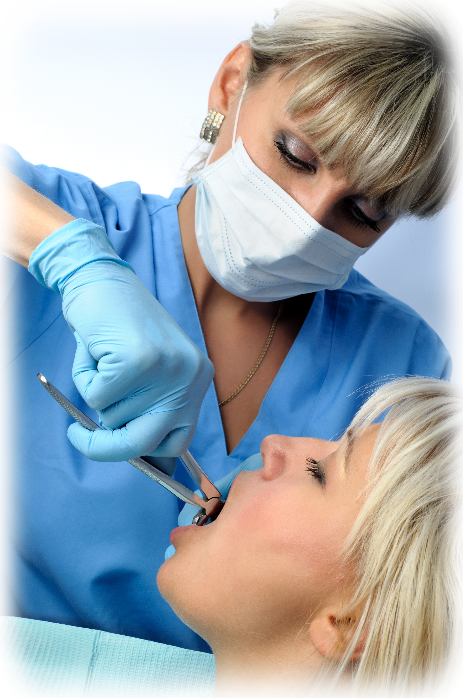DENTAL SURGERY
Our experience will help remove any problems that come your way. We will try to make all procedures as comfortable as possible.
TOOTH EXTRACTIONS
The team at Dentallive Clinic has extensive experience in removal of teeth of all shapes, sizes and locations. This knowledge and care taken into the procedure minimizes the discomfort a patient may experience. Teeth may be extracted because they are severely decayed, have advanced periodontal disease, broken in a way that cannot be saved (including vertical root fracture) or even in some cases healthy teeth that are misaligned in the mouth (such as impacted teeth). Removal of teeth require analysis of the radiograph and intraoral conditions.
WILL IT HURT?
Anytime you remove a tooth it is considered surgery. As expected there will be some discomfort after the procedure but no pain during the procedure. Pressure is the only sensation freezing cannot get rid of during the procedure. Before we take out any tooth we always check to make sure your nice and frozen. There are pain prescriptions and antibiotics avaliable after the procedure depending on the case.
HOW LONG DOES IT TAKE TO HEAL?
Any discomfort should subside within two weeks of the procedure. The socket or gums will take 4-6 weeks to close and the bone should heal within 3-6 months.
WHAT IS A DRY SOCKET?
The socket is the hole in the bone where the extraction of the tooth had occured. Dry socket is when the blood clot that forms in the socket to protect the bone and nerves underneath becomes dislodged or dissolve a couple of days after the extraction. This creates pain that leaves the bone and nerve exposed to the outside environment which can lead to infection and pain radiating throught the face. It only happens in 5-10 % of cases but increases with any of the following risk factors:
- smoking
- poor oral hygiene
- wisdom teeth removal
- on birth control
- history of dry socket
- diabetes
- excessive spitting/ sucking
- lower teeth more common than uppers because food gets caught.


